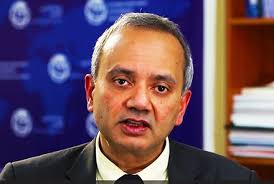The Federal Executive Council (FEC) has approved a budget estimate of N13.08 trillion for the 2021 fiscal year.
The Minister of Finance, Budget and National Planning, Mrs. Zainab Ahmed, who disclosed this to State House correspondents at the end of the council’s meeting on Wednesday, explained that the budget proposal was designed to enable the country attain inclusive growth.
She listed other key objectives of the draft budget as including, stimulating the economy, creating jobs, enhancing growth, creating infrastructural investment and promoting manufacturing and local production.
According to the minister, the budget proposal’s key assumptions are Naira exchange rate of N379/dollar, oil benchmark of $40 barrel per day, oil production volume of 1.86 million barrels per day, Gross Domestic Product growth target of three per cent; and inflation rate of 11.95 per cent.
The minister further clarified: “The budget assumptions that were presented to the council today include: one, crude oil price benchmark at $40 per barrel; two, oil production at 1.86 million barrels per day; three, exchange rate of N379 to $1; four, Gross Domestic Product growth target of three per cent; and five, inflation rate of 11.95 per cent.
“We do expect that Nigeria’s economy will recover to the path of growth early in 2021; so the total aggregate revenue that is projected for the 2021 budget is N7.89tn and what is unique about the 2021 budget is that we have brought in the budgets of 60 government-owned enterprises. If you recall, in 2020 we brought in 10, now we have brought in 60.
“These 60 excludes the NNPC and the Central Bank and the reason being NNPC, (is) a national oil company, internationally national oil companies are not included in the national budget”, she added.
Ahmed explained that apart from the two entities, 60 government-owned enterprises are now included in the budget, adding that this implies that their revenue and all categories of expenditure are now integrated into the budget.
She said: “We have a total aggregate revenue of N7.89tn and also an aggregate expenditure of N13.08tn for 2021.
“There is a fiscal deficit of N4.49tn, this represents 3.64 per cent, slightly above what is required by the Fiscal Responsibility Act of three per cent and also to report that the total capital expenditure that is projected in the budget is 29 per cent of the aggregate expenditure.
“This is an improvement over the 24 per cent that we had in the 2020 budget, but slightly below the 30 per cent that we targeted in the economic recovery”, Ahmed added.
The minister further pointed out that the 1.86 million barrels per day crude oil production comprised 400,000 condensates and based on the oil production assumption Nigeria had complied with the OPEC quota, which is placed at about 1.5 million barrels per day.
According to her, the 1.86 million is in meeting with the OPEC quota and this is important to the government “because as you report, if you just report the 1.86 million, some members of the OPEC appear to think that we are exceeding OPEC quota, whereas we are reporting oil and condensate.”
On the performance of the 2020 budget, the finance minister said the budget recorded 68% prorated performance on revenue as of July, while the expenditure recorded 92.3 per cent, implying that salaries and pensions were paid; debt service and transfers classified as statutory obligations fulfilled.




